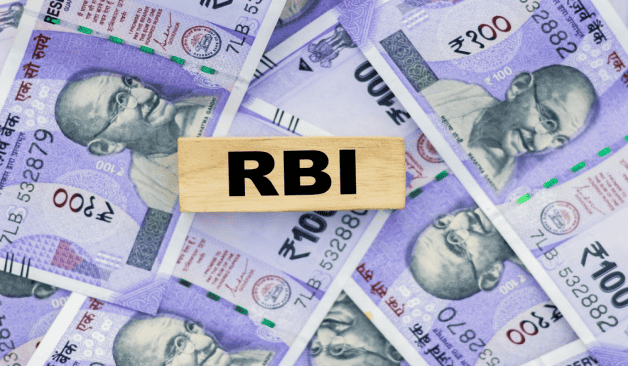
The Role of Central Banks in Stock Markets
When it comes to the stock market, the central body we talk about is the Security and Exchange Board of India (SEBI). However, the central bank also plays a crucial role in the stock market. The Reserve Bank of India (RBI) manages the financial system in India which also includes the stock markets. RBI's main objective is to maintain price stability and ensure financial stability in the system. In this article, we will look at some of the key roles of RBI in Indian stock markets.
Role of RBI in the stock market
RBI and its policies do not directly impact the stock market. However, since RBI and its policies are financially linked, they do have a role to play in the stock market. Below are the roles of RBI in the stock market:
Monetary Policy
Reserve Bank of India uses monetary policy tools such as interest rates reserve requirements, and open market operations to manage the money supply and control inflation. When the RBI raises interest rates to combat inflation, it can lead to higher borrowing costs for companies. It potentially reduces corporate profits and dampens stock market sentiment. Conversely, when the RBI lowers interest rates to stimulate economic growth, it can make equities more attractive to investors compared to fixed-income assets. It leads to increased stock market activity and potential gains. The central bank's interest rate decisions play a crucial role in influencing investor behavior and overall stock market performance in India. As we saw last year, when the RBI started increasing the interest rate, the market remained volatile for a long time.
Regulatory Oversight
The RBI and the Securities and Exchange Board of India (SEBI) regulate and supervise various aspects of the Indian stock markets. SEBI, as the primary securities regulator, ensures fair and transparent trading practices, monitors market participants, and enforces rules and regulations to protect investor interests. The RBI's role includes overseeing clearing and settlement systems, which are crucial for the functioning of stock markets.
Liquidity Management
RBI is responsible for managing liquidity in the Indian financial system. The Central Bank provides short-term funds to banks through various operations, including the repo and reverses repo markets. For example, when it injects liquidity into the system through repo auctions, banks have more funds available for lending. It leads to lower interest rates and increased liquidity in the stock market.
Conversely, when the RBI absorbs liquidity through reverse repo operations, it can lead to higher interest rates and reduced liquidity, potentially affecting stock market activity negatively. The central bank's liquidity management decisions thus have a direct impact on the cost of funds and investor sentiment in the stock market, influencing stock prices and trading volumes.
Currency Management
Central banks are responsible for issuing and managing the national currency. The RBI plays a crucial role in maintaining the stability of the Indian rupee. Let us see how.
When the RBI actively manages the exchange rate of the Indian rupee, it can influence the competitiveness of Indian exports and imports, affecting the earnings of companies engaged in international trade. A stronger rupee may boost foreign investor confidence and inflows into the Indian stock market. On the other hand, a weaker rupee may benefit export-oriented companies but could also raise concerns about inflation and external debt.
Therefore, the RBI's currency management decisions directly influence the performance and sentiment of the Indian stock market by affecting the competitiveness of domestic businesses in the global market.
Financial Stability
RBI is tasked with ensuring the overall stability of the financial system. They monitor and assess potential risks to financial stability, including those arising from the stock market. In times of financial crises or extreme market volatility, central banks may intervene to stabilize the markets and restore confidence among investors.
Foreign Investments
RBI regulates and liberalizes foreign direct investment (FDI) and foreign institutional investment (FII) policies, periodically revising investment limits and sectoral caps. When the RBI eases restrictions or increases investment limits, it can encourage greater foreign capital inflow into Indian equities. It leads to increased demand for stocks and potentially boosting stock market performance. Conversely, tightening regulations can have the opposite effect. Therefore, the RBI's policies regarding foreign investments directly influence the flow of funds into the Indian stock market, affecting its overall health and performance.
Influence on Market Sentiment
Central banks' actions and statements have a profound impact on market sentiment. Investors closely watch central bank meetings and announcements for signals regarding future monetary policy decisions. Any hints of changes in interest rates, inflation targets, or economic growth forecasts can trigger significant market movements. Central banks, therefore, need to communicate effectively to manage market expectations.
Before you go
Reserve Bank of India plays a multifaceted role in Indian stock markets. They influence market conditions through their control of interest rates and liquidity, maintain regulatory oversight, manage foreign exchange reserves, and provide stability during crises.
The actions and policies of central banks have a profound impact on investor sentiment and overall market performance. As India's economy continues to evolve, the role of central banks in its stock markets will remain crucial in ensuring financial stability and sustainable economic growth.
 Top Mutual Funds
Top Mutual Funds



